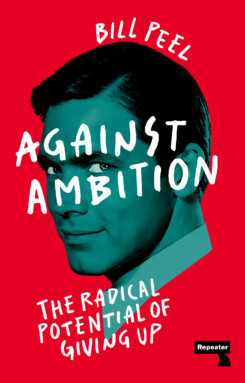£7.99 – £12.99
A how-to guide for the left on how to overcome Nietzsche’s divisive and damaging influence.
How to Read Like a Parasite overturns the whitewashed and defanged version of Nietzsche that has been made popular by generations of translators and academic philosophers who have presented his work as apolitical and without a core reactionary agenda.
The central argument of the book is that Nietzsche’s philosophy does have a center, and that the left learns a great deal from Nietzsche when we read him as driven by a highly sophisticated reactionary political vision that informs all his major concepts and ideas.
The most important Nietzschean concepts — from perspectivism, ressentiment, eternal return to the pathos of distance — are analyzed in the historical context in which Nietzsche lived and wrote, and several case-studies of prominent left-Nietzscheans from Jack London, Gilles Deleuze, Wendy Brown to Huey Newton are discussed.
How to Read Like a Parasite makes a persuasive case for how we can overcome Nietzsche’s damaging influence on the left, showing us how to read and understand his work without becoming victims of it.
Daniel Tutt is a philosopher and educator based in Washington, DC. He writes on Marxism, philosophy, and psychoanalysis and has taught philosophy at George Washington University, the Washington, DC jail and Marymount University. Tutt is a podcaster with Repeater and Zer0 Books. His first book, Psychoanalysis and the Politics of the Family (2022), is published with the Palgrave Lacan Series.
“Daniel Tutt avoids both traps that haunt Leftist readings of Nietzsche: a quick condemnation of Nietzsche as an irrationalist precursor of Fascism, and the elevation of Nietzsche into a philosopher of new authentic life who was falsely appropriated by the extreme Right. Tutt doesn’t achieve this by way of playing the safe middle ground – on the contrary, he first fully assumes the Nietzschean standpoint, recounting his own experience of its liberating aspect, and then gradually brings out the illusory character of this liberation. In the full sense of the term he knows what he is talking about: in his critique of Nietzsche, he settles the account with his own past illusions. Today, in our age of quick new Right or new Left dismissals, such a stance is needed more than ever.”
“It is fascinating to see that an author can achieve both: to self-analyze the liberative impact Nietzsche had on his life as an adolescent growing up under the conditions of a broken family, alcoholism and drug abuse and to reveal the fundamentally reactionary character of Nietzsche’s hierarchical philosophy – and this not only in the late 19th and 20th centuries, but also in our neoliberal society of fragmented singularities. As Daniel Tutt shows convincingly, Nietzsche’s super-individualistic cult of authenticity fits seamlessly to a capitalist ideology which calls upon the subjects to live out their subjectivities in a competitive way and to pursue their own “brand”. And he paints a compelling picture of the ways that Nietzscheanism hijacks the left where it undercuts the egalitarian perspectives and reduces counter-hegemonic politics to countercultural gestures of revolt.”
“Daniel Tutt’s How to Read Like a Parasite is what many of us have long awaited: the first systematic post-Losurdian reading of Nietzsche. Taking very seriously the ultra-reactionary dimensions of Nietzsche’s thought, Tutt paints the Anti-Christ as the great opponent and rival of the socialist left. What follows is a careful and considerate revelation of decades of left- Nietzschean thought. Beautifully written and bursting with spirit How to Read Like a Parasite is destined to be vital reading.”
“Providing a detailed exposition of the political foundations of Nietzsche’s philosophy, Daniel Tutt performs exceptionally well the task of derailing leftist readings of Nietzsche that have sought to contrive an “elective affinity” with a philosophy fundamentally at odds with their political principles. Written with clarity and force, sensitive to historical context and covering an extensive array of the Nietzsche literature, this book animates a new standard in reading Nietzsche.”
“The first task of any Marxist reckoning with Nietzsche is not to condemn but to contextualize historically. Tutt’s book is exemplary in this regard. Rather than denouncing Nietzsche, it acknowledges his genius while reminding his Left admirers that he took sides in the class struggle, with the dominators against the dominated. Downplaying this inconvenient fact, Leftist recuperations of Nietzschean politics proceed by displacing social contradiction from politics to culture, proposing aesthetic resolutions to social antagonisms. In exposing this strategy, Tutt’s evaluation of the consequences of Nietzschean politics is more lucid than Nietzsche’s Left admirers might wish.”
“After decades of attempts at ‘left Nietzscheanism’, the Left has finally rediscovered the extent to which Nietzsche is fundamentally incompatible with any politics aimed at universal emancipation. But unlike recent work by Losurdo, Landa, or Rehmann, Tutt appreciates what makes Nietzsche so seductive for the Left. By drawing upon his own personal journey from Nietzsche to Marx, as well as a nuanced understanding of precisely why ‘left Nietzscheanism’ could never have succeeded, Tutt articulates a Marxist critique of Nietzsche that does not shy away from admitting the degree to which that critique is indebted, however ironically, to Nietzsche as well. Tutt’s book sets a new standard for understanding how to read Nietzsche from the political left.”
“Daniel Tutt asks a disturbing question. How is it that the contemporary Left has become entranced by Nietzsche, despite his aristocratic and anti-egalitarian bias, his indirect apologetics for capitalism, and his pseudo-subversive cultural support for the system? Tutt’s answer is that Nietzsche’s reactionary politics were fashionably set aside and marginalized in such a way as to create a false “elective affinity” of Nietzsche and Marx. The resulting Nietzschified Marx encouraged the retreat from class and the self-alienation of the Left. The conclusion of How to Read Like a Parasite is that a ruthless, even “parasitical” critique of Nietzsche, who cannot be ignored but must be constantly confronted head on, is the key to overcoming the destruction of reason in our time.”




